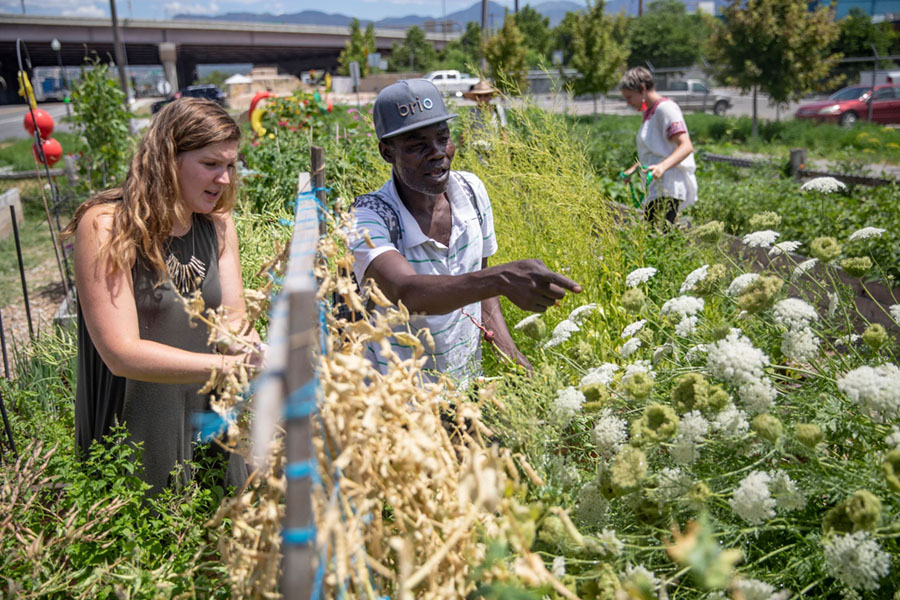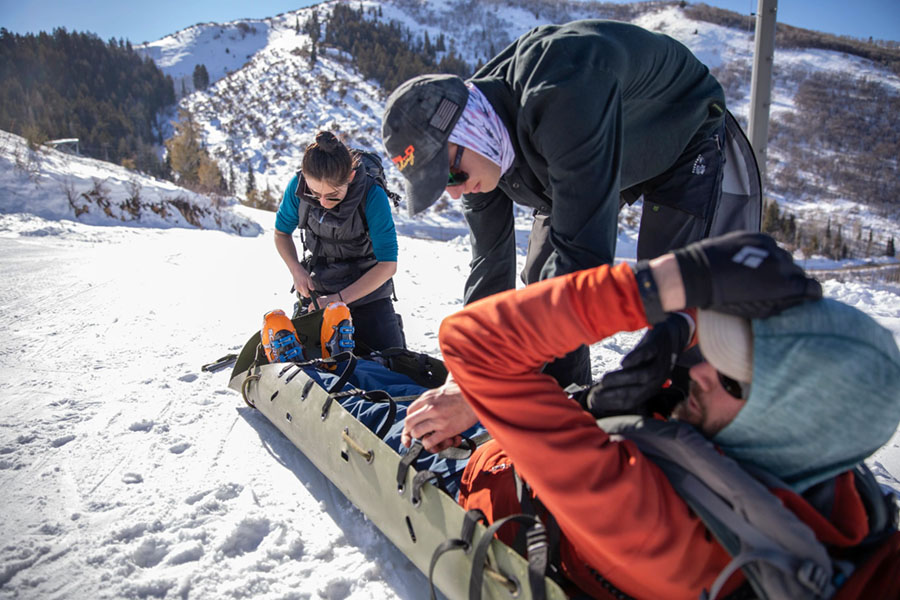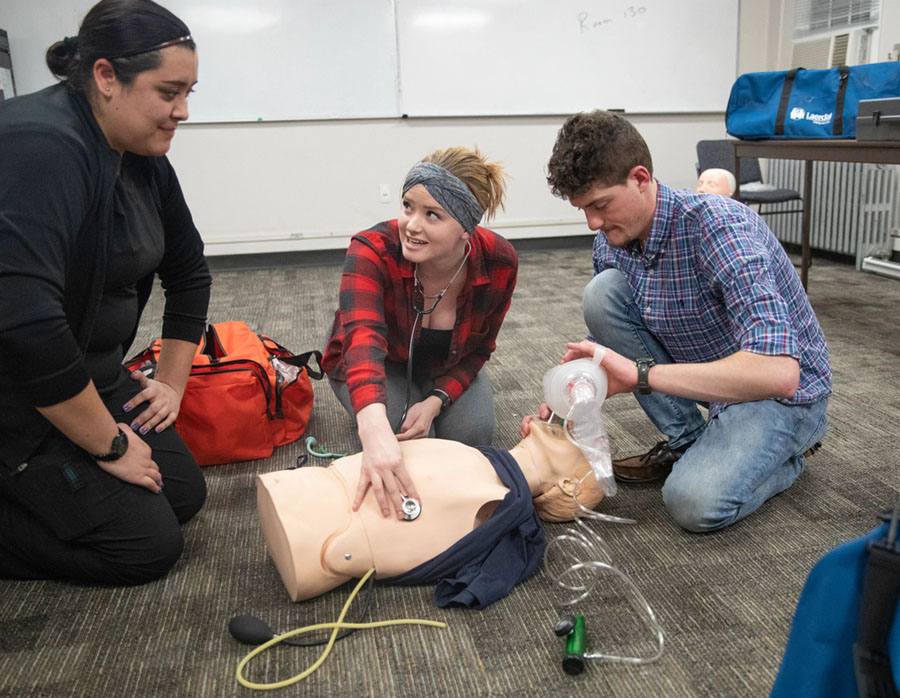
Compassion, Attention, and Communication for Better Health

Imagine a classroom where students and faculty serve and learn in their own communities. It’s a reality in the University of Utah College of Health, which continually strives to create a culture of wellness in Salt Lake City, Utah, and worldwide.
“True community engagement includes service but must also involve engaging members of a community in project decision making and planning,” says Scott Ward, PhD, interim dean at the college. “It involves the application of student learning and requires skills that include real-world compassion, attention, and communication.” To make that kind of difference, the College of Health leverages the combined knowledge and expertise of six departments. In 2022, community engagement initiatives included culinary medicine, PEAK fitness classes, and the Center for Emergency Programs in the Department of Health & Kinesiology. The latter has a huge reach in Salt Lake City and beyond. Chris Stratford, MS, and his team in emergency medical services offer hundreds of trainings a year to community businesses, university partners, and rural populations in Utah.

This includes teaching an EMT course for the residents of Wayne County, the stretch between Capitol Reef and Canyonlands National Parks. This area isn’t lacking in natural beauty, but it does lack access to big-city health care resources. To facilitate remote rescue training, the Center for Emergency Programs also offers swiftwater rescue courses, including flood response, to an average of 35 community members per year. They partner with local fire departments for five-day long courses and work with Brighton Ski Resort to implement critical response systems, like cliff rescues and lift evacuations.
More than 600 students from across the University of Utah have enrolled in the center’s basic life support courses in the last year. These future medical assistants, nurses, physicians, and health care providers facilitate this critical knowledge into deadly situations to save lives.
Such measures can also be applied as early interventions that positively impact people in need. After Shannon Jones, MS, from the Department of Nutrition & Integrative Physiology noticed ongoing resource gaps for Salt Lake City’s unsheltered community, she and her colleagues received a planning grant from the National Science Foundation to build a hybrid farm and civic engagement center.

Jones and her team hope to get seeds in the ground and officially open the Intersectional Food Access Rights for Marginalized Communities (IFARM) Hub next year, building on the success of existing programs at Wasatch Community Gardens’ Farm. “We want to build community and create programming that is self-sustainable and economically viable,” Jones says. “For example, community members can get access to healthy food but also contribute to growing it. It doesn’t feel like they’re getting charity—they’re part of this community that’s working together to meet their own needs.
”The Hub will aggregate food, housing, health, transportation, and technology services to increase and improve access to basic resources for people experiencing homelessness. As one of the largest colleges on campus, the College of Health understands the importance of interdisciplinary collaboration. “Our longstanding contributions to community health services and pro bono clinics have assisted many in the community who do not have e access to health prevention and clinical care programs,” Ward says. “Participating students tell us it positively changes their perspective around the people they serve, and it gives them an increased confidence in their applied skills.”
